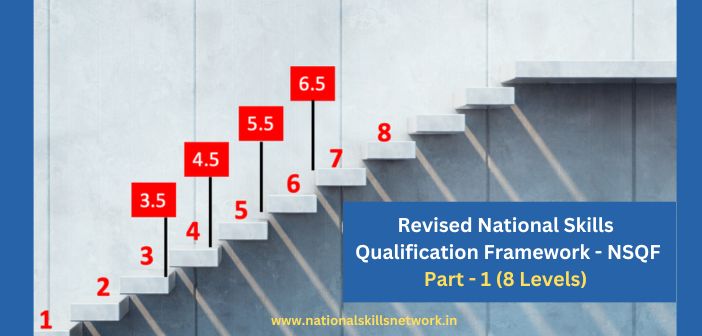In light of the dynamic shifts in education catalyzed by the National Education Policy (NEP) 2020, the National Skills Qualification Framework (NSQF) has undergone a significant transformation. There have been few changes to the evolving educational landscape, where the NSQF levels has streamlined its structure from 10 levels to a more agile and cohesive 8-level framework. This strategic shift not only aligns the NSQF with the National Credit Framework but also sets out to bridge the gap between academia and the demands of the workforce.
Embarking on this exploration is like unraveling a puzzle, where each revision shapes the landscape of education. Let’s explore more about the revised NSQF levels and how they signify a positive change in the realm of education.
Below is a detailed video presentation for a thorough understanding of the revised NSQF levels. You can watch the full video on our YouTube channel.
The Educational Paradigm Shift
India’s education system has long grappled to meet the different needs of its youth, especially those who were obligated to enter the workforce at an early age. The revised NSQF levels addresses this challenge by providing flexible pathways for learners and integrating vocational education with mainstream academic pursuits.
In a collaborative effort, important bodies such as UGC, BSC, NCVET, AICTE, DGT, and NIOS joined forces to revise the NSQF levels. Originally launched in 2013 and revised in June 2023, the framework has played a crucial role in vocational and skill-based courses, setting the stage for broader adoption and alignment with the NEP’s vision.
Key Objectives of the NSQF
The NSQF’s objectives are as follows:
- Integrate and prioritize vocational education
- Acknowledge diverse dimensions of academic skilling and experiential learning
- Prescribe competency levels in knowledge, skills, aptitude, responsibility, and learning outcomes
- Establish equivalence between vocational and general education
- Enable multidisciplinary learning with flexible progression pathways

Competency-Based Framework
The NSQF places a renewed emphasis on competencies, highlighting the importance of skills alongside knowledge and aptitude. In this framework, competency is about what we need when we start working. Imagine applying what we’ve learned for a job—how good are we at it? This is where competency comes in, showcasing our proficiency at a certain level. For instance, at level 1, the expected competency might be just assisting, being a helper while still learning and supporting someone more experienced. As we progress to levels 5 or 6, the expectation shifts to being responsible and independent.
In the earlier NSQF with 10 levels, the progression was straightforward, like climbing steps from level 1 through 10. But in the revised structure with 8 levels, it’s a bit different. Now, it goes from level 1 to level 2, then moving through level 2.5 to level 3, level 3.5 to level 4, then level 4.5 to level 5, level 5.5 to level 6, level 6.5 to level 7, and then level 8. This change is made to align with the credit framework, which also suggests having 8 levels, and that brings more flexibility, allowing learning to happen over a period of time. The main goal is to make these levels more adaptable to various learning experiences.
The revised NSQF levels bring a positive change to Indian education, promoting flexibility and recognizing different ways of learning. By implementing competency-based learning, we’re unlocking the door to lifelong learning and skill development. This ensures a workforce that is not just finding jobs but thriving in today’s ever-changing world.
Subscribe to our YouTube channel for more updates:
Subscribe on YouTube



very informative site, kindly inform with new notifications published by GOI